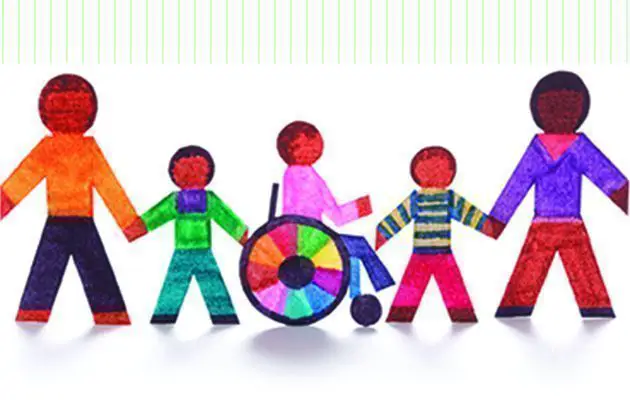The move from preschool to the ‘big school’ rarely goes off without a hitch for any child, but for one with learning disabilities, it can be especially challenging. How can you help? Try these ideas from Sarah Birnbaum, a special needs consultant in New York City.
Make it official. It’ll be easier for your child to accept the finality of leaving preschool if he has something tangible to hang on to. Make a Goodbye Book of photos, written as a story, and including a calendar showing the first and last days he spent there.
Look ahead. Likewise, a Hello Book, heavy on visual supports (a.k.a. photos) will serve to get children excited about their new school and ease trepidation. It may be tricky to get pictures of the interior of the school before your child starts, but ask. If photo-taking isn’t allowed, ask if they have any images they could share showing representative classes or fun school events. You can also try the school or district website, as many have photos taken both inside and outside.
Make one (or two) visits. Visiting the elementary school is essential, either on a formal group tour, on your own (call the school first to set it up), or both. While there, keep your eyes open for distinguishing features your child can look for on the first day. If you point out the yellow monkey bars or the fish tank in the lobby, your child will feel more relaxed seeing those familiar things later.
Set expectations. Kids will do better when they know what is expected of them. Flying by the seat of your pants may seem easier at first, but tends to backfire. Let them know what they must do each school day (within their capabilities, of course), such as packing lunch or laying out clothes the night before—and hold them to it.
What About Your Transition?
Parent development doesn’t necessarily match child development, Birnbaum points out. Many parents of children with learning disabilities have as difficult a time with the kindergarten transition as their kids do—maybe even moreso. Birnbaum sees a sense of regret in some parents who come to her, of not wanting to accept the hand they’ve been dealt. “I’m reminded of that Talking Heads’ song…Where is that large car? This is not my beautiful house. This is not my beautiful wife,” says Birnbaum. “They’re struggling to let go of how things were supposed to be.” Her advice? Acknowledge your feelings or they’ll turn around and bite you. “Allowing yourself to fully feel them and move through them is the only path to being able to help your child. The system won’t help your child if you don’t.”
What triggers this sense of loss now isn’t just stress over all the paperwork and phone calls in your future, but a growing social isolation. Now is the time when moms and dads can feel singled out. A 2-year-old running around a playground with a stick in each hand, shouting at the other toddlers, may not even be noticed. But when a 4- or 5-year-old does the same thing, it likely will be noticed, and not in a positive way.
Also, at this age, drop-off play dates often begin, and your child may have limitations that now need explaining, like what activities he enjoys and which can overwhelm him, sounds that bother him, or maybe he isn’t yet ready to be dropped off at all.
Lastly, especially in the city, other parents often start a conversation with “What school is she going to?” It can sting when you mention one that caters to special needs, and your potential new friend says something along the lines of “I never heard of it!” It’s less about meanness than it is about a simple desire to “sort you out,” Birnbaum says. “Schools are a currency in a way. In the [NYC] boroughs, at least, it’s often the first slot fellow parents put you in, and then they go from there.”
In all of these situations, intrusion is worst when you come across as clueless. “You need to get ahead of it. You’re in charge of the vibe,” Birnbaum says. Have a line at the ready, and act confident when you use it. “You don’t need to fake exuberance, but you can’t cry, either,” she says. Practice saying your ‘lines’ until you can deliver them smoothly. Watch your body language as well.
Get Support!
The importance of having a circle of support cannot be underestimated. One good friend who is going through the same challenges you are is worth five who can only imagine what you’re going through. Go to nymetroparents.com/special-support to find special needs parent support groups in your area.
Another option is starting a group yourself. Spread the word in your child’s school and your place of worship. Parents who have done it name three things that bolster attendance: providing child care for younger siblings, organizing carpools, and snacks! Establishing a “calling tree” to remind parents of upcoming events also helps keep meetings going strong.
Sarah Birnbaum is a Manhattan-based special needs consultant and special education advisor (nyspecialneeds.com).















